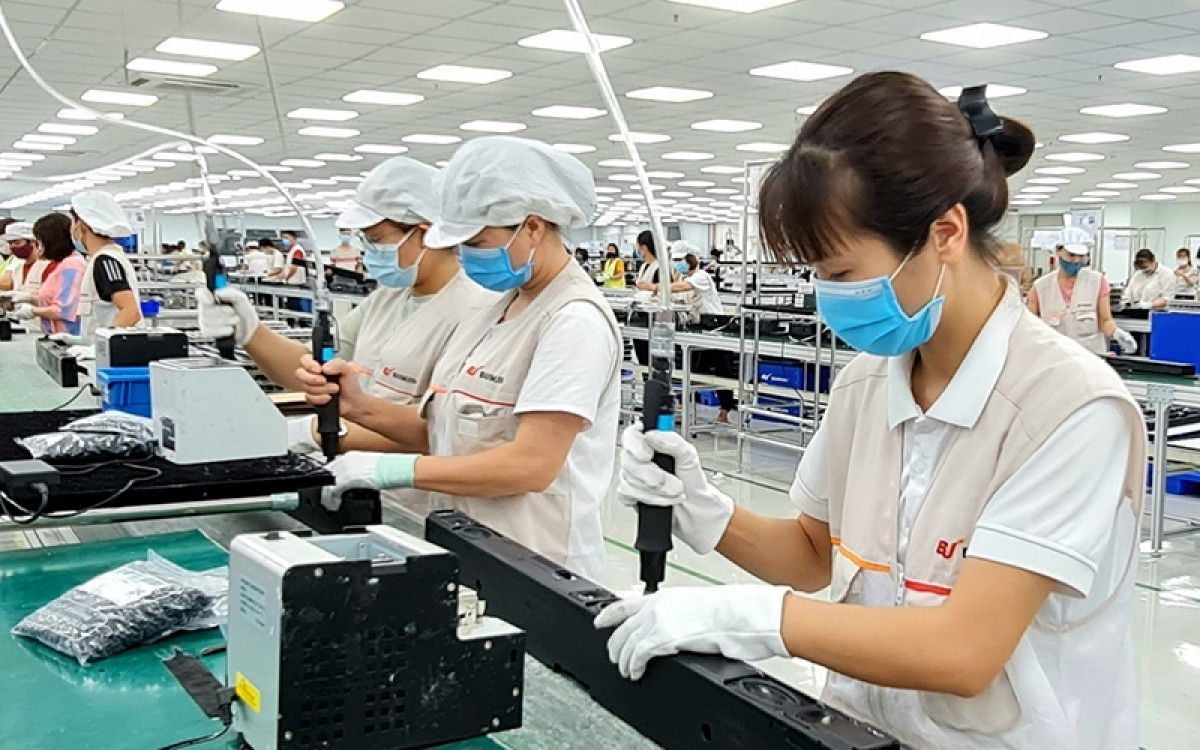
A major challenge

The global minimum tax initiated by the Organisation for Economic Cooperation and Development (OECD) has become a hot topic globally as it impacts large corporations’ investment strategy, as well as the Governments’ investment attraction policy.
A tax rate of 15% will be applicable to large firms with an annual turnover of EUR750 million. This tax policy is scheduled to take effect in most EU states, along with Japan, the Republic of Korea, Singapore, Indonesia, Hong Kong (China), and Australia, among others in 2024. However, it is yet to be effective in Vietnam.
Currently, Vietnam boasts about 335 projects with registered investment capital of over US$100 million each operating in the fields of processing and manufacturing in economic and industrial zones.
Most of them are invested by high-tech firms, such as Samsung, Intel, LG, Bosch, Sharp, Panasonic, Foxconn, and Pegatron, with all of these likely to be subject to the global minimum tax if it is applied in Vietnam.
With an average income tax rate of around 12.3%, even as low as 2.75 to 5.95%, the country is using tax incentives as a solution to attract foreign investment.
If the Government does not introduce timely response solutions, then benefits from the corporate income tax incentives that foreign firms enjoy in the nation will no longer exist, thereby affecting its attractiveness, as well as the competitive advantage of the local market in attracting FDI.
At a workshop held on April 18 in Hanoi, Choi Joo Ho, general director of Samsung Vietnam, said that the implementation of the global minimum tax will make Vietnamese tax exemption and reduction policies no longer effective for FDI enterprises, as well as having negative effects on the local investment environment.
The difficulty is even greater for corporations that are setting up production bases in countries that seek to attract investment through corporate income tax incentives, he warned.
Major suggestions
With a total investment of US$20 billion, Samsung Vietnam represented by six manufacturing legal entities and a research and development centre produces half of smart phones globally.
It is expected that Samsung and other large foreign firms will be officially affected by the global minimum tax policy starting from 2024.
Choi therefore suggested that the Vietnamese Government develop new forms of support, like the preferential monetary support mechanism that is widely applied in other countries such as the US, Germany, and India in a bid to compensate FDI businesses impacted by the application of the global minimum tax.
He also suggested that the Government introduce a qualified domestic minimum top-up tax (QDMTT) mechanism that calculates the excess profits of constituent entities located in the jurisdiction in a way that is equivalent to the GloBE Rules to protect its tax base.
Hong Sun, president of the Korea Chamber of Commerce in Vietnam (KOCHAM), proposed that Vietnam legislate this tax in a bid to reduce the impact on companies that have invested in the country, whilst simultaneously creating peace of mind for large investors who are intending to do business in the Vietnamese market.
Sharing this perspective, Robert King, head of Ernst & Young Indochina in Vietnam, pointed out that in the event the tax mechanism is not adopted, the country will not only lose the tax difference, but also its competitive advantage will also be affected.
As an investment recipient, Vietnam must achieve two important goals of proactively gaining the right to tax, and creating a favourable investment environment to ensure effective competition in terms of attracting foreign investment, he stressed.
According to Dang Ngoc Minh, deputy director general of the General Department of Taxation, relevant Vietnamese agencies are closely monitoring countries’ movements and will therefore report to the Government.
He suggested that the Government first raise the minimum tax rate to 15% for businesses and then promulgate regulations relating to tax deduction at source in Vietnam.
He also stressed the need to amend tax incentives as a way of protecting domestic revenue, promulgate a minimum tax rate of 15%, and introduce tax incentives in support of investment and labour training costs, as well as green growth and environmental protection.
Source: VOV